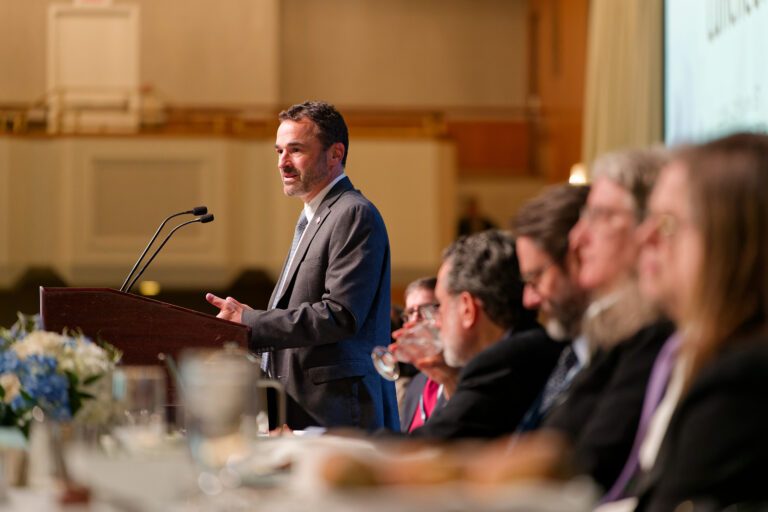Improving Taxpayer Engagement in a Politically Charged Environment Among Challenges Facing IRS Commissioner Daniel Werfel
1.16.2024

Moving the department into a more user-friendly technological atmosphere in a politically challenging environment is among the most pressing issues for the Internal Revenue Service, IRS Commissioner Daniel Werfel told hundreds of tax lawyers gathered for the New York State Bar Association’s Annual Meeting.
Werfel, who assumed his position nearly a year ago, engaged in a question-and-answer session with Executive Committee members at the Tax Section luncheon. The program was part of opening day events at the New York State Bar Association’s 147th Annual Meeting.
Werfel took questions for 45 minutes in a room filled with nearly 900 lawyers.
“We are at an incredibly important inflection point for this organization and the reason for that is for more than 10 years that predated the passage of the Inflation Reduction Act, the IRS budget was cut year over year over year, so much so that when you add it all up it equated to about a 20 or 25% cut,” said Werfel.
Those cuts reduced the department’s staff size to the same as it was during the 1970s.
In addition, the IRS has for years been at the center of some intense political battles with Republicans wanting to deplete the agency and Democrats relying on it to collect revenue to fund its legislative priorities.
Werfel noted that the IRS is also challenged to adjust to new rules — such as the regulations adopted as part of the Affordable Care Act — and a changing economy with the addition of online payment platforms such as PayPal and Venmo.
“If I was up here in 2010 mentioning those things, you would think I have lost my mind. Now they are a fundamental reality of our tax system and when it happens, and you have this ever-expanding set of requirements and challenges and new issues, as your resources decline, you start to strain at the seams,” said Werfel.
To help address those challenges, the IRS released a strategic operating plan in August that outlines how it intends to use $60 billion in additional funding it received as part of the Inflation Reduction Act. The money is earmarked to improve the taxpayers’ engagement experience with the department, to strengthen its tax compliance programs in a more equitable manner and to modernize its technology systems.
“We have lifted technology higher in the organization and closer to the commissioner’s office because just about everything that I have ascribed to success-wise is going to require significant and accelerated modernization of our technology,” said Werfel.
He added the department has the funds to build an IRS for the future, but that it is equally important that it produces results immediately and builds a technological infrastructure that addresses the roots of solutions.
“I would not be successful as the commissioner if I walked into this room, for example, and said the Inflation Reduction Act is a 10-year program, we have tens of billions of dollars to spend, and get excited because in year six things are really going to start taking off. Things almost have to happen on day one and that involves things we have done since day one like hiring, like bringing in new people and now the IRS is at 90,000 people, which is a big milestone because we are hiring mostly customer service reps and now we’re getting to the hiring of the auditor phase,” said Werfel.





